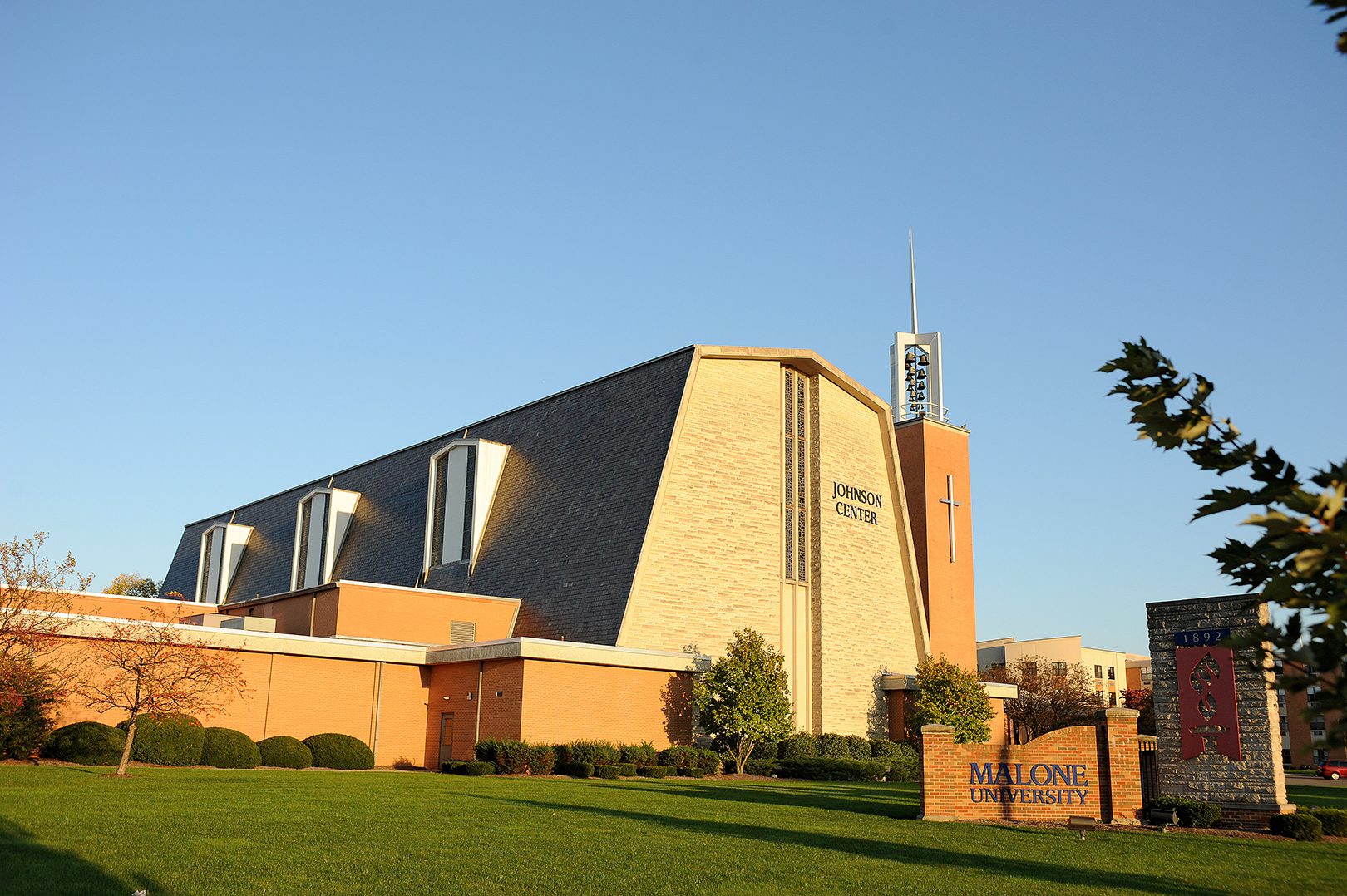
Mission, Vision, Educational Goals
Faith-integrated learning: Preparing students for career, calling, and Christ-centered leadership
Our approach to faith-integrated liberal arts education compels us to walk alongside each student as they discern God’s calling for their career and their life. We believe that our faith shapes how we understand the world around us and informs how we serve as leaders in the workplace, the Church, and our families. From Welcome Week to Commencement, we disciple our students as they explore how academics shape one’s faith and vice versa. We prepare students not only for jobs, but for life—because, in the workplace and beyond, talent and skill matter but how we reflect Christ matters more.
We recognize that achieving a comprehensive education that seamlessly integrates faith and learning is an investment. Here at Malone, our financial aid team is ready to partner with your family to help determine the best opportunities available to you.
This page includes cost and financial aid information for students interested in any of Malone’s on-campus and online undergraduate degree programs.

A Christian University in Canton, Ohio
Our Mission
The mission of Malone University is to provide students with an education based on biblical faith in order to develop men and women in intellectual maturity, wisdom, and Christian faith who are committed to serving the Church, community, and world.
Our Vision
To lead as a Christ-centered university known for welcoming, mentoring, and serving each student toward God’s purpose in their life and career.
Educational Goals
As an academic institution in the tradition of the Evangelical Friends Church, Malone is committed to intellectual enrichment in the context of Christian faith.
We believe we’re called to provide an education that produces graduates with a love of truth and a vibrant, mature faith. It’s our deep desire that students gain the wisdom, knowledge, and skills necessary to serve, engage, and transform the communities in which they live and work.
To this end, we provide the curricular and co-curricular context in which to pursue the following educational goals.
Understand and critically engage those bodies of knowledge and cultural influences that have shaped the world.
- Understand, appreciate, and engage the intellectual traditions and social influences that shape American culture
- Understand, appreciate, and engage diverse views and cultures, including international perspectives
- Develop an enriched understanding of the nature of human identity, development, and behavior
- Comprehend central concepts and employ key methods of inquiry of the natural and social sciences, fine arts, and humanities
Understand the biblical, historical, and theological foundations of the Christian faith.
- Know the central content and themes of the Bible, as well as key methods of biblical study
- Understand the main contours of Christian history and theology, including those central to the Evangelical Friends’ heritage
- Understand and respond to Christian approaches to ethical and social issues inherent in learning and living
Think critically and creatively and communicate effectively in multiple contexts.
- Read and listen to the ideas of others with understanding and discernment
- Develop the reasoning skills necessary to evaluate and construct arguments well
- Become proficient in problem solving, using both quantitative and qualitative approaches
- Speak and write clearly and effectively
- Develop skills in creative thought and expression
Attain expertise in at least one profession or academic discipline and lay the foundation for meaningful work or further studies at the graduate level.
- Understand the content, methods, and assumptions of their chosen field(s) of expertise
- Explore interdisciplinary connections between their chosen field(s) and other disciplines
- Understand their personal aptitudes, gifts, and limitations, as they discern their vocational callings
- Develop the ability to gather and reflect on relevant information and use technological resources
- Apply specialized knowledge and skills constructively in collaboration with others
Explore the implications of the Christian faith for all areas of living, including intellectual, spiritual, and community pursuits.
- Read and think about the relevance of Christian faith to academic and vocational inquiry
- Develop wisdom and appreciate the value of thoughtful reflection throughout a lifetime of learning
- Understand and consider a lifetime commitment to follow Jesus Christ as Savior and Lord
- Develop relationships characterized by love, compassion, and service to others
- Recognize the ways in which a Christian view of human life encourages the pursuit of integrity, wellness, and stewardship of all the gifts and resources entrusted by God
- Be challenged to embrace God’s call by serving as agents of justice, reconciliation, peace, and truth who extend Christ’s kingdom in their churches, communities, and the world